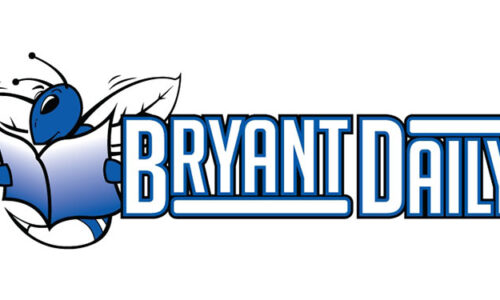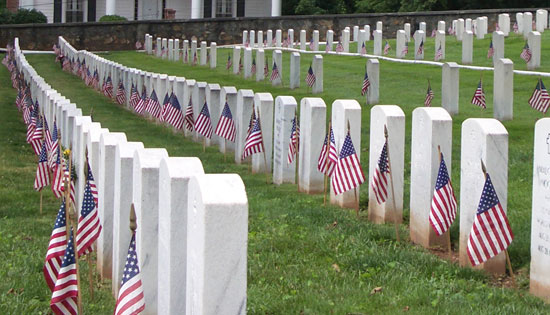By Martin Couch
A lawsuit has been filed in Saline County Circuit Court by Bryant mayoral candidate Jill Dabbs over alleged violations of the City Council and current Mayor Larry Mitchell of increasing water and wastewater rates in the city.[more]
"I don't know why this lawsuit was filed," Mitchell said. "It is just like the lawsuit my opponent filed against the election commission, it’s all about self promotion.
"The City Council passes ordinances and they can change those ordinances any time they would like and, at times, they may not get everything done in a timely fashion. There was never an intention of fraudulence or an in-your-face type thing. From my understanding, the lawsuit was about us not having a study compiled by August."
Dabbs and other petitioners of the lawsuit claim the rates were not in compliance with Ordinances 2008-35 and 2008-35, the original documents fixing a water/waste water rate.
"Every month on a continuing basis, our staff and the water committee looks at our revenues and expenditures, and makes adjustments at that time," Mitchell said. "They want to collect as much information as they can. For example, the bid for the water tower didn't come in until after August. If water rates had been set before then, they would have been on what they thought the cost of the tank would have been, which would be an additional $1 million and that would have made rates higher. The more information you get, the more facts you can put in and the more accurate you can be in setting the rates. The City Council looks at that and they are very diligent — ask all eight of them, they will tell you the same thing."
Before the original ordinances were passed, the city hired an engineering firm to do a 20-year study on how to plan Bryant's future growth in water/waste water and at that time, a rate schedule was put together, Mitchell indicated.
"That's where the 15 percent are some of the numbers coming from that," Mitchell said. "This year, we didn't go by that rate schedule, because there is a 10 percent (9.95-9.99) change the rate should go up. The City Council saw this and worked to get it adjusted down to 3 percent. It's close to the end of the year and rates don't have to be set until the January water bill goes out, so we've got a couple of more months to make those adjustments and the City Council has to pass it. With these types of savings, we are hoping it will be a minimal increase if any."
Some of the projects the city has been working on have been delayed by the failing national economy and since they aren't complete it could cause an increase, added the Mayor.
"They may or may not go up," Mitchell said. "We have been accumulating money to this point to take care of these projects and we are not going to have to borrow. In fact, we will be borrowing less in the future and it saves rate-payers money."
The following are the two amended ordinances that the Bryant City Council passed on Dec. 10, 2009. Ordinance 2009-27, which was to amend ordinance number 2008-36 to decrease water rates and other purposes, and Ordinace 2009-28 to decrease sewer rates are being charged by Dabbs' lawsuit as void.
Ordinance 2009-27 amended sections 1 (b) and (c) of Ordinace 2008-36 to read: For water service billed by City after January 1, 2010 the amount to be paid by each customer shall be computed in the basis of the following schedule of rates: for the first 2,000 gallons of water consumption per month or portion thereof: 5/8 meter size, $8.25, 3/4 meter size, $12.37, 1" meter size, $20.62, 1.5" meter size $41.24, 2" meter size $65.98, 3" meter size $123.72, 4" meter size $206.21, 6" meter size $412.41. All water consumption in excess of 2,000 gallons: $4.24 per 1,000 gallons.
Section 1(c): for water service billed by the city after January 1, 2011 the amount to be paid by each customer shall be computed on the basis of the following schedule of rates: for the first 2,000 gallons of water consumption per month or portion thereof: $9.58, $14.38, $23.96, $47.92, $76.67, $143.77, $239.61, $479.22 (with the same meter sizes as mentioned above). All water consumption in excess of 2,000 gallons: $4.94 per 1,000 gallons.
Ordinance 2009-28 amended ordinance 2008-35 to decrease sewer rates changed section 1 (b) and (c). As of January 1, 2010, the amount paid by each customer rates for the first 2,000 gallons of water consumption per month or portion thereof: $13.20 for all water consumption in excess of 2,000 gallons and $6.45 per 1,000 gallons.
Section 1(c) states rates for January 1, 2011 would be $15.22 for 2,000 gallons and $7.46 for 1,000 gallons.
"There was never an intent," said Bryant Finance director Gary Hollis. "Always the Mayor and the Council look at all the ordinances very carefully and adjust it down accordingly. It was never an intent to increase rates that much."
Alderman Adrian Henly, from Ward 3, which is old-town Bryant where updated wastewater and water sources will be needed in the future, believes that the lawsuit is unfounded.
"There are two things she (Dabbs) is claiming," Henley said. "One, she's claiming we didn't do a review by an independent company to review the water rates before we could actually raise them. It's our own ordinance that says we have to do that."
Henley noted that there was a "about a 5 percent" rise from 2010 to 2011 in minimum price per gallons.
"According to section 2 of our own ordinance, the city shall view the rates set forth," Henley said. "It does not say we have to have an outside source to do it. It's right there in English. It says before June 30, which will be three years since the bonds were set, someone other than a city engineer will have to come in and do a study on us. She's claiming we have to have outside reviews when we review water rates every year. What she's wanting to do is set rates back to the original deal and if she sets rates back it's raising our rates after we decreased them 6 percent of what the original rate was. She doesn't understand.
"The second thing is she's saying is on the amendment we increased it to pay the bonds and it passed," he continued. "We reviewed the rate and it was something like a 9 percent increase, which was more than what we thought was deemed necessary. When we rebuked the rates, we came up with our 3 percent instead of 9 percent. With the second ordinance, she is claiming we decreased the water rate. This is an amendment to that original ordinance and we decreased the water rate by six percent. Her whole case is frivolous according to our actual paperwork."


